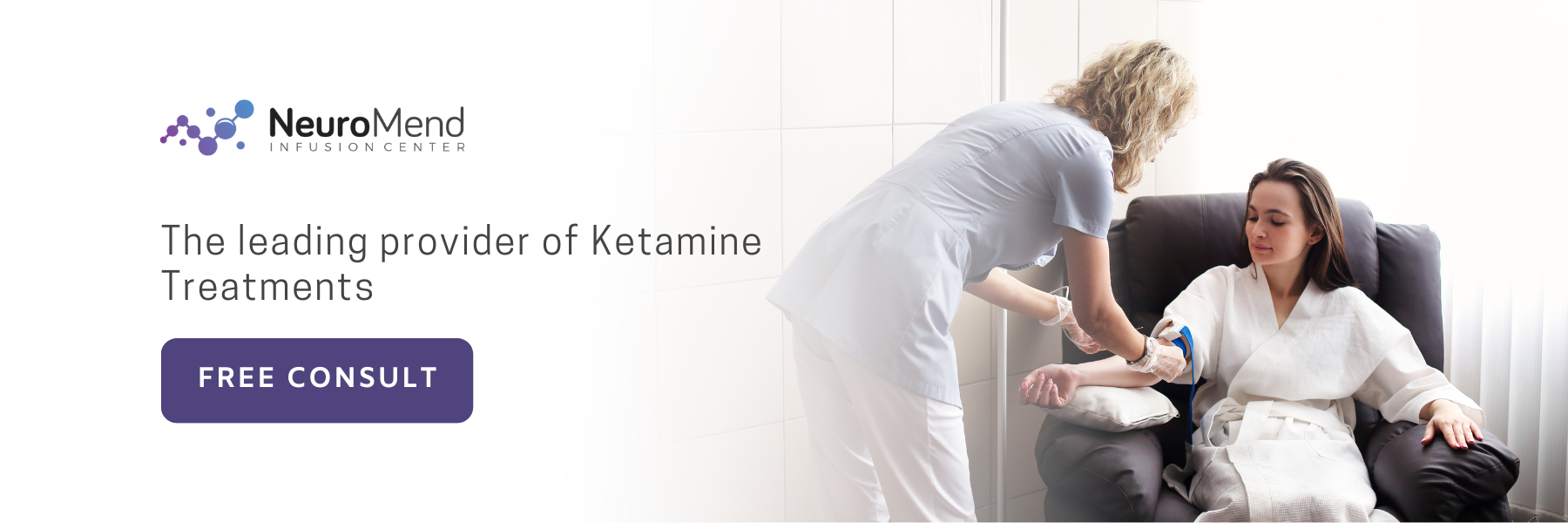
For millions of people worldwide, depression is a debilitating condition that disrupts daily life and diminishes joy. While many respond positively to traditional treatments such as SSRIs (Selective Serotonin Reuptake Inhibitors) and SNRIs (Serotonin-Norepinephrine Reuptake Inhibitors), others find themselves in a frustrating position—medications and therapies that work for others simply don't bring relief. These individuals may be suffering from Treatment-Resistant Depression (TRD), a more complex form of depression.
But there’s hope. New and innovative treatments like ketamine infusions are emerging, offering a fresh approach to alleviating TRD symptoms, often with rapid and noticeable improvements. Let’s dive into this transformative therapy, its effectiveness, and how it compares to traditional methods.
What Exactly Is Treatment-Resistant Depression?
Treatment-Resistant Depression, or TRD, occurs when a person does not experience adequate relief from depressive symptoms despite trying two or more antidepressant medications. While SSRIs and SNRIs are commonly prescribed, they often target the symptoms of depression rather than the root cause. This leaves many patients feeling stuck in a cycle of trying various medications with little to no improvement.
Why Are Traditional Treatments Not Enough?
Traditional antidepressants, such as SSRIs, work by increasing serotonin levels in the brain, which can help stabilize mood over time. However, they take weeks to kick in and don’t always address the underlying problem: the way our brain communicates within itself to regulate mood and emotions.
The reality for many with TRD is that these medications act like a “band-aid,” masking symptoms without truly treating the root issue. Depression, at its core, is often a communication breakdown in the brain’s neural circuits, which affects how emotions and thoughts are processed.
How Does Ketamine Offer Quick Symptom Relief for TRD Patients?
Imagine living with intense, overwhelming sadness or emotional numbness for years—then suddenly, after one infusion, you start to feel lighter, almost as if a weight has been lifted. That’s the power of ketamine.
What Makes Ketamine So Effective for TRD?
Ketamine is not your typical antidepressant. Unlike SSRIs, which focus on boosting serotonin, ketamine works differently. It targets glutamate, a neurotransmitter responsible for creating new neural connections. By increasing synaptic plasticity, ketamine allows the brain to rewire itself, promoting healthier emotional regulation and thought processes. In other words, it helps fix the underlying communication issues in the brain, rather than simply masking the symptoms.
According to clinical studies, patients with TRD often experience symptom relief within hours or days after their first ketamine infusion—something nearly unheard of in traditional depression treatments. This immediate relief, although temporary, can be life-changing for individuals who have struggled with persistent, severe depression.
But How Long Does the Relief Last?
While ketamine provides quick relief, the effects are often short-lived after a single infusion. This is why a series of six infusions is typically recommended to maximize and prolong the benefits. By undergoing multiple sessions, patients have a better chance of achieving long-term improvements in mood and emotional well-being.
Ketamine IV therapy isn’t just about fast relief; it offers hope for sustained mental health. Over time, the cumulative impact of ketamine on brain plasticity could pave the way for deeper, longer-lasting healing.
 Is Ketamine Just Another Band-Aid for Depression?
Is Ketamine Just Another Band-Aid for Depression?
One common critique of antidepressants is that they don't address the root cause of depression. They may help manage symptoms, but once you stop taking them, the depression often returns. For many, this cycle can feel never-ending.
What Makes Ketamine Different from SSRIs and SNRIs?
Ketamine is different. Rather than being a “band-aid” like many oral medications, ketamine therapy works at a fundamental level to repair how the brain processes emotions. By improving synaptic plasticity, ketamine strengthens the brain’s ability to form new, healthier pathways for communication between neurons. This is crucial because, in TRD, these pathways are often disrupted or weakened.
Essentially, ketamine is not just managing the symptoms but attempting to fix the problem itself. It’s like restoring the wiring of a broken radio so that it can once again play music clearly, rather than just turning up the volume to drown out the static.
The fact that this therapy works on the brain’s communication system gives it a unique advantage. Patients undergoing ketamine IV therapy report feeling a sense of clarity and emotional resilience they hadn’t felt with traditional medications.
Should You Consider Ketamine for TRD?
For anyone with TRD, the search for an effective treatment can feel endless. But with ketamine infusions offering quick relief and addressing the root cause of depression, there’s a new option worth exploring.
Is Ketamine Safe?
Ketamine, used in low doses for IV therapy, has been shown to be safe and well-tolerated by most patients. However, it’s important to note that ketamine is not without risks, and it must be administered by trained professionals in a controlled setting.
If you or a loved one is battling TRD and is considering ketamine infusions, it’s essential to consult a healthcare provider who specializes in this therapy.
Are You a Candidate for Ketamine?
Anyone experiencing persistent symptoms of depression despite trying multiple anti-depressants might be a candidate for ketamine treatment. If traditional medications aren’t working, it may be time to look into therapies that address the deeper issues within the brain.
Ketamine could be the breakthrough you’ve been waiting for. At Neuromend, we have a team of experts ready to help you explore whether ketamine IV therapy is the right fit for your needs. We’re here to provide the guidance and care you need on your journey toward better mental health. Don’t wait—reach out to us today and take the first step toward lasting relief from TRD.
ABOUT NEUROMEND INFUSION CENTER
![]() We are an Evidence-Based Center of Excellence and the leading provider of Ketamine Infusions, IV Infusions and Ketamine Consulting Services for Ketamine Clinics and IV Therapy Clinics.
We are an Evidence-Based Center of Excellence and the leading provider of Ketamine Infusions, IV Infusions and Ketamine Consulting Services for Ketamine Clinics and IV Therapy Clinics.
We Provide Effective Treatment For The Following Conditions: Major Depressive Disorders, Post-traumatic Stress Disorder (PTSD), Bipolar Depression, Obsessive Compulsive Disorder, Suicidal Ideations, Chronic Migraines, Severe Anxiety, Fibromyalgia and Chronic Pain Syndromes.










